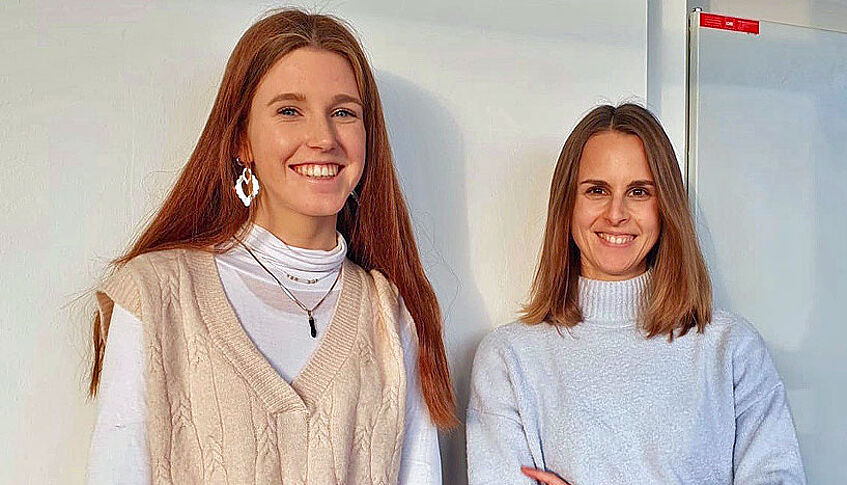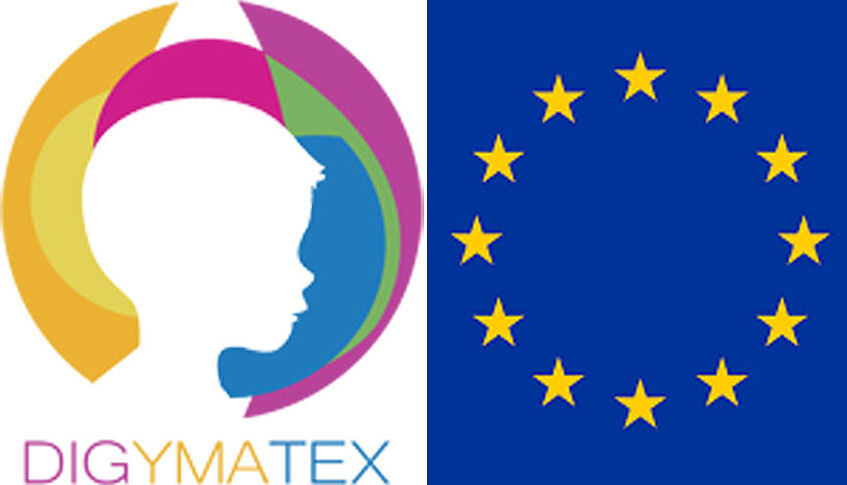

Project: DIGYMATEX – Establishing a comprehensive understanding and taxonomy of children’s digital maturity
Team: EU Horizon 2020 Research Project/Project team Vienna:
• Arnd Florack (Scientific Manager of the Consortium, Work Package Leader)
• Franziska Laaber (see picture, on the right)
• Annemijn Hofstede (see picture, on the left)
Project Partners:
• Aarhus Universitet – Denmark
• University of Vienna - Austria
• Freie Universität Berlin - Germany
• Instituto de Empresa, Madrid - Spain
• Nofima AS – Norway
• Athens University of Economics and Business – Research Center - Greece
• Universiteit Van Amsterdam – The Netherlands
• Trinity College Dublin – Ireland
• Universitätsklinikum Bonn - Germany
• IBM Denmark AOS - Denmark
• Vitagora Pole – France
• Agora – Israel
Goal of the project: The goal of DIGYMATEX is to provide evidence-based tools to support the understanding and measuring children’s digital maturity. The project aims to provide clear insights into children’s digital maturity and its influence on their mobile ICT usage and long-term well-being.
Why is this important and useful? Mobile information and communication technologies (ICTs) play an integral role in the lives of today’s children. To support a beneficial and effective mobile ICT use of children, the project tries to shed light into the underlying processes of digital maturity.
Abstract: Young people interact with mobile information and communication technologies (ICTs) on a regular basis. Previous research on children’s digital media usage has provided knowledge about the possible negative consequences that excessive usage can have on their well-being and integrity. Another line of research deals with the importance of children’s digital literacy to actively participate in an increasingly online world. As young people increasingly move into the online world, they are exposed to several opportunities for positive experiences and development. However, there is still no clear and comprehensive picture of a beneficial and effective mobile ICT usage by children, conceptualized in the present project as “digital maturity”. Therefore, the goal of DIGYMATEX is to investigate the underlying processes of children’s digital maturity and to provide evidence-based tools that will assist the understanding and measuring of children’s digital maturity.
Explanation - easy to understand: Young people use digital media such as smartphones or tablets a lot. Scientists found out that using digital media can be bad for children and their health. For example, some children use smartphones so much that they are not able to put them away anymore and do not get enough sleep. But digital communication technology can also be very helpful and fun for young people. In the research project DIGYMATEX, we want to find out how children use digital communication technology in way that is good for them. Also, we plan to develop an instrument to measure digital maturity of children.
Links:
Project homepage: digymatex.eu
Facebook: www.facebook.com/digymatex
Twitter: twitter.com/digymatex
LinkedIn: www.linkedin.com/company/digymatex/
